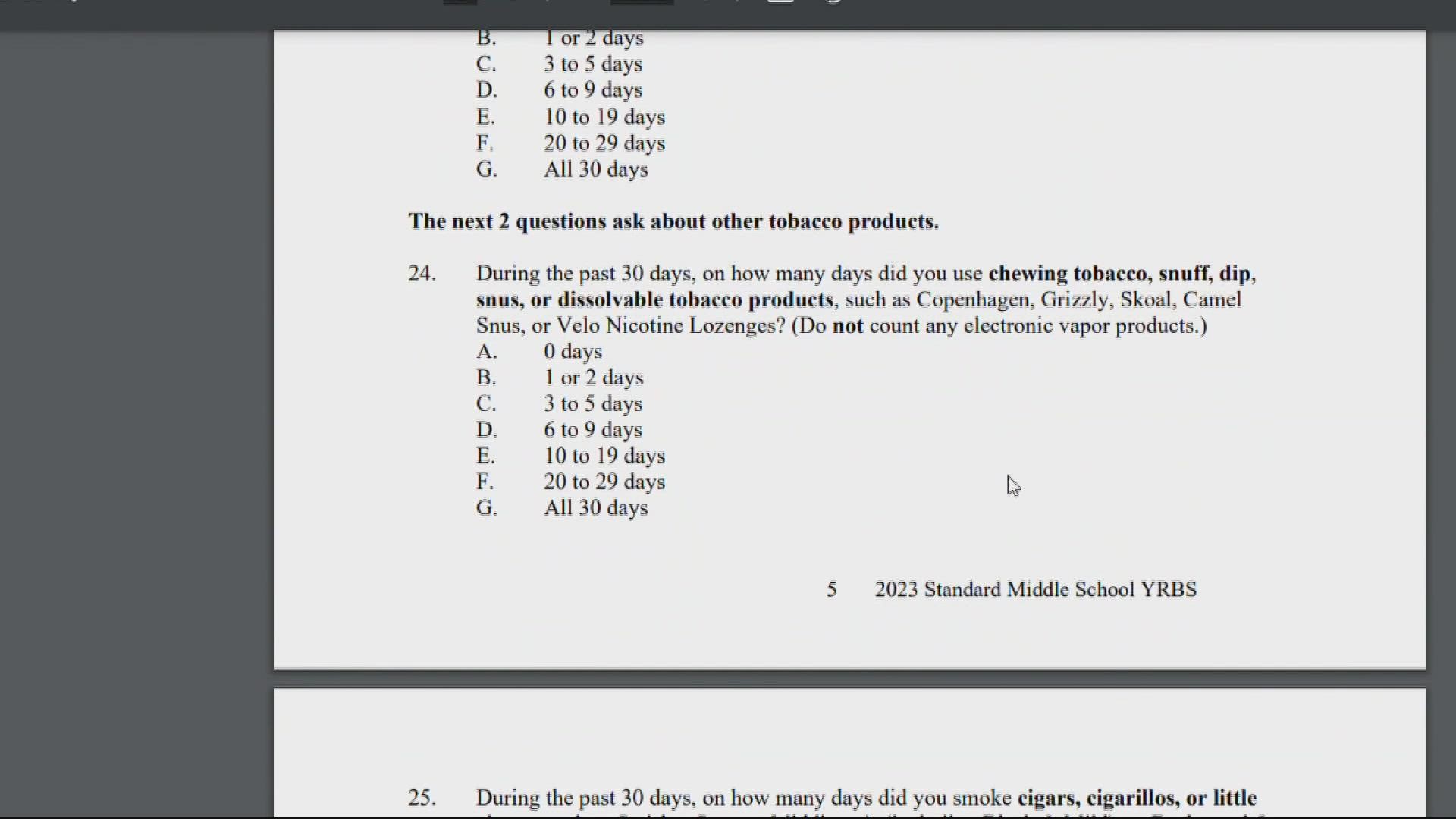JACKSONVILLE, Fla. — Outcry over questions on a survey for Duval County Public Schools students prompted the district to cancel it.
Several parents voiced their concerns at a recent board meeting, and the Florida Commissioner of Education then pressured the school district to pull the survey.
The surveys, which are created by the CDC and measure students' exposure a variety of risky behaviors, were supposed to go out Thursday and Friday.
The news that they've been cancelled is a win for parents concerned with the content, but some educators worry it will hurt students in the end.
"It does feel like a win," said Moms For Liberty Duval President Rebecca Nathanson. "We were surprised. We were simply pushing for greater transparency and have parents be aware of their opt out rights. We certainly didn't expect the outcome."
Nathanson says the past week has been a whirlwind, she and fellow parents filled the Duval school board meeting Tuesday to bring up their concerns- about the Youth Risk Behavior Survey asking students about their sexual history.
In response, the school district mailed out a copy of the survey so parents could see the questions and opt out their child if they chose to. But by Friday, school officials decided to cancel it altogether under pressure from the Commissioner of Education and the State Department of Health.
"We just want transparency and we really want to know what our children are being exposed to or are being asked," said Nathanson.
Professor Elissa Barr from UNF helped craft some survey questions and is worried about the impact losing the data will have not only in the schools, but at agencies all around the county.
"This survey supports millions of dollars in Florida for programs and funding to implement these programs," said Barr. "As a state, we're going to be losing a lot of money."
Barr says Drug Free Duval, United Way and the Mayo Clinic are just a few of the groups that use the data.
For example, United Way uses the questions about mental health and suicide when evaluating the effectiveness of its program - Full Service Schools.
"These questions are tried and true, so to get rid of all of them now just because we don't like a few about sex, that's really unfortunate," said Barr.
Nathanson says the state is working on a similar survey that she thinks will help fill the void.
"We'll be able to address some of these health risks without impinging on parental rights or violating students' innocence," said Nathanson.
This survey is part of a larger CDC grant that pays for teen health centers.
Barr says 600 teenagers were able to get free testing for sexually transmitted diseases last year because of that grant money - 54 tested positive for STDs and five tested positive for HIV, and were then able to get treatment.
She's hoping that even though the district backed out of the survey, it'll apply to remain a part of that grant.
Duval was one of the six large school districts in Florida to administer the survey, as part of a grant from the CDC.
First Coast News has reached out to the others to find out whether they are under similar pressure to remove it.
A spokesperson with Pasco County mentioned they were going to give out the survey this week, but decided to pause it temporarily because of concerns at the state level.
A CDC spokesperson said they have not received any official confirmation from locally funded districts that they plan to withdrawal.
The organization did issue a statement about the recent concerns surrounding the survey:
"CDC has collected and analyzed data on youth health and well-being for more than three decades. A variety of organizations and individuals use CDC’s YRBS data to understand progress and challenges in protecting the health and wellbeing of our youth.
Today, CDC published its national YRBS 10-year trends report, which found teen girls are experiencing record high levels of violence, sadness, and suicide risk; and that LGBQ+ teens continue to face extremely high levels of violence and mental health challenges. Without YRBS data, we would have no way of knowing about these alarming national trends. Areas that receive CDC funding to conduct YRBS are also able to add or remove questions, according to CDC guidance and local needs.
CDC is committed to supporting the health of our nation’s youth, and YRBS data are a critical first step to revealing, understanding, and addressing the changing health threats they are facing."

